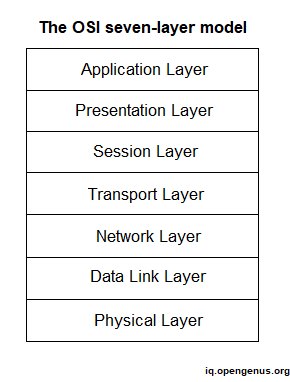Aditya Chatterjee's Blog, page 128
January 14, 2022
SELU (Scaled Exponential Linear Unit) Activation Function
We will look at the very promising but not very common activation function called SELU (Scaled Exponential Linear Unit) and understand its main advantages over other activation functions like ReLU (Rectified Linear Unit). This article presents lots of essential points about this function.
Table Of Contents:Brief recap of the pre-requisites
What are Neural Networks?What is an Activation Function?What is ReLU?What is SELU?
Implementing SELU function in Python
What is normalization?
...January 13, 2022
MatMul in TensorFlow
In this article, we have explored MatMul operation in TensorFlow (tf.linalg.matmul()) and have presented a sample TensorFlow Python code performing MatMul (Matrix Multiplication).
Table of contents:
Introductiontf.linalg.matmul() + TF code for MatMulGlossaryIntroductionMachine learning, and for that matter artificial intelligence, uses a wide range of data to design models for a variation of tasks. This variation in the use of these models means the data types vary as well. In most scienti...
Error Detection in Computer Network
In this article, we are going to explore about error detection in computer networks. We will be seeing some standard error detecting codes which help in detecting errors. So let's get started.
Table of contents:
Introduction to ErrorTYPES OF ERRORERROR DETECTING CODESSimple parity checkTwo dimensional parity checkChecksumCyclic redundancy checkIntroduction to ErrorError as we all know is a situation when message received is not identical as compared to error sent. It is very important ...
Network Layer Protocols
The Open Systems Interconnection (OSI) reference model is one of the most crucial networking concepts to comprehend. This conceptual model illustrates a network architecture that enables data to be transferred between computer systems.

Each layer of the OSI model serves a distinct purpose. In this article, we will discuss about the functions of network layer and the protocols that are linked with it.
Table of contents:
The Network LayerProtocolsNetwork Layer ProtocolsInternet Protocol (IP)...How to design a System? (Cheatsheet)
In this article, we have covered the process of developing a system's components, architecture, and interfaces to satisfy end-user needs which is referred to as system design. Reliability, Scalability, Availability, and Maintainability are all factors that must be considered while making decisions.
Table of contents:
System Design ReliabilitySystem Design: AvailabilitySystem Design ScalabilityLoad BalancerCaching for SystemsMapReduce for Distributed MemoryComponents of a SystemDesign Con...Implementing Random Feature at OpenGenus IQ
I was tasked by OpenGenus to implement a random feature, literally. It was going to be a page that immediately redirected a user to a random opengenus article. You can check it out here. So in this article, we will be going through the process of how I developed the random feature.
Feature: iq.opengenus.org/random/Code: github.com/OpenGenus/randomFeature SpecificationI was tasked by the very gracious Aditya Chatterjee as part of my internship to implement the random feature for opengenus. I...
Master theorem for Time Complexity analysis
In this article, we have explored Master theorem for calculating Time Complexity of an Algorithm for which a recurrence relation is formed. We have covered limitations of Master Theorem as well.
Table of contents:
Introduction to Algorithm AnalysisRecurrence relationsMaster theoremMaster theroem limitationsIntroduction to Algorithm AnalysisAn algorithm is a set of instructions or steps which are followed in order to complete a certain task or solve a particular problem, kind of like a rec...
January 12, 2022
OpenGenus Visual Documentation
In this article, we give a detailed documentation of the development of OpenGenus Visual project which is an open-source Visualization tool for Algorithms and Data Structures.
OpenGenus Visual Project: on GitHub.
Try some of the visualizations:
BFS VisualizationDFS VisualizationNumber of Islands VisualizationLarger Island by changing 0 to 1 VisualizationWe have covered the common components and the overall structure of OpenGenus Visual which is our Visualization project for Algorithms and ...
Different ways to reverse vector in C++ STL
In this article, we take a look at different ways to reverse vector in C++ Standard Template Library (STL) along with reversing a 2D vector.
Table of contents:
Introduction to VectorC++ vector STL function std::reverse()By swapping the elementsBy using reverse iteratorsConsider the case of a 2D vectorImplementation - reversing 2D vector rowsImplementation - reversing 2D vector columnsPre-requisites:
Vector in C++ STLDefining a 2D vector in C++3D Vectors in C++Introduction to Vector...Register Allocation in Compiler Design
Scheduling and selection of registers during execution assumes infinite number of registers even though processors only have a limited number of registers, in this article we take a look how variables are mapped onto registers.
Table of contents.Introduction.Liveness.Liveness analysis.Interference.Register Allocation by graph coloring.SpillingHeuristics.Summary.References.Introduction.During machine code generation phase in compiler design we translate variables in the intermediate ...



